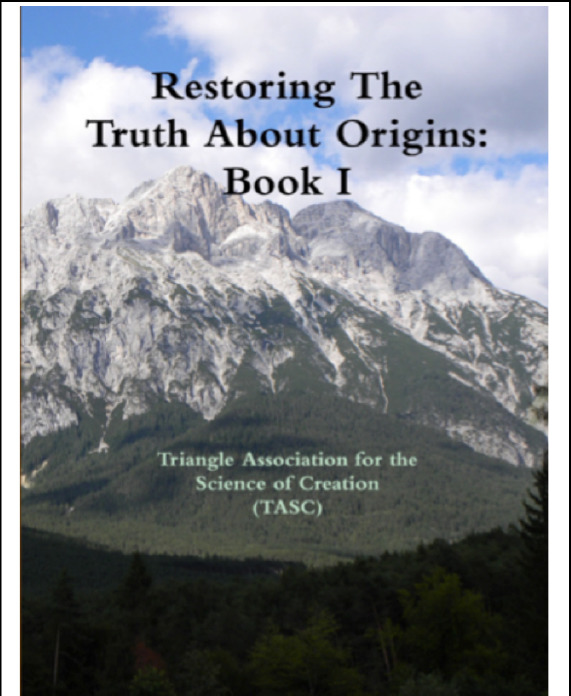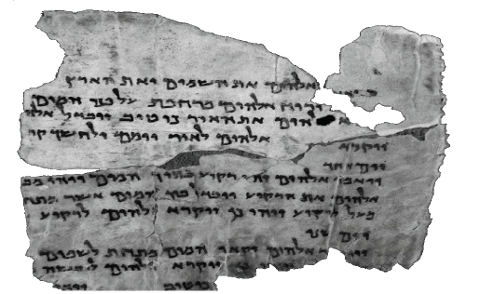What Happened at Babel?
When a person thinks about Babel, they almost always think about language.
When a person thinks about Babel, they almost always think about language.
Perhaps the most frequent argument used by skeptics against the Christian faith is that a good, loving, and all-powerful God wouldn't possibly allow evil (along with sorrow, pain, bloodshed, etc.) into his world. Evil obviously exists in our world. It is all around us. Thus, the biblical God can’t possibly exist. If he did, and he was indeed omnipotent, he would obviously do something about it! It is not only skeptics, however, who struggle with this “problem of evil.” The Christian who shares his faith will find that this question probably causes more people to doubt the validity of the Bible and the Christian faith than any other.

Figure 1 - Front cover of the book
We are excited to announce that TASC‘s Restoring the Truth About Origins: Book I is now available! We pray and hope you will purchase copies for yourself, family, and associates as gifts to enjoy and be even better edified on this important topic of origins. What we think about our origins has had a profound influence on the thinking and actions in our society in the past and will today and in the future. So we encourage you to get copies today (see ordering information under Availability and Purchasing heading below)!
The book of Romans explains so much about creation and the nature of man and reality as we know it. The Spirit quickly has Paul record this fact about the beginning:
For since the creation of the world his invisible attributes, his eternal power and divine nature, have been clearly seen, being understood through what has been made, so that they are without excuse. (Romans 1:20)
As scientific creationists we can, if we are not careful, become focused on our main issue of the historical and scientific accuracy of the Creation / Fall / Flood / Tower of Babel account of Genesis 1-11 to the point that we fail to remember that our greater mission is to uphold the authority of the entire Bible. But our underlying and greatest mission as believers in Jesus is to make disciples as we go into the world. That was the last of all the commands of our Lord Jesus that we are to obey. Our effort to uphold the truth of Genesis is only one important tool that helps Christians to effectively present the gospel as being a reasonable thing for the world to believe by faith.
|
|
| Clay prism describing Sennacherib's siege on Jerusalem |
One question often heard concerning creation and man’s origins, as well as life’s origins, is whether Biblical accounts describing man’s origins and God’s creation of the universe can be trusted. Are the Biblical accounts accurate? Did the creation really occur? Was there really an Adam? an Eve? Was there really a world-wide global flood? There is amazing evidence that many miraculous events described in the Bible actually took place as described by the Bible. In this article we shall look at some of this evidence.
I will begin by stating the mission of TASC: "to rebuild and strengthen the foundation of the Christian faith by increasing awareness of the scientific evidences supporting the literal Biblical account of creation and refuting evolution."
While the TASC Board invests considerable time and energy in pursuit of scientific evidences for explanations of the universe, earth, and life as we know it, we never want to lose sight of the importance of the Creator Himself, Jesus Christ. It is the constant desire of TASC to have all peoples recognize first and foremost the Creator Himself.

Figure 1 - Scroll fragment containing Genesis from Dead Sea scrolls
Modern science makes bold insistence that it alone has, in the last 250 years or so, unlocked the true formula for determining the age of creation. Christians under the influence of this thinking go along with the assumption that the creation account in Genesis is not already clear when read in its most simple and straightforward manner. They do this by isolating Genesis 1 from the rest of Scripture so the account of creation can be dismantled piecemeal and reconstructed in whatever way is necessary to conform to the wending ways of modern science. Rather than Scripture shedding light on science, modern science becomes the light by which all other things must be understood.

Here is our Earth, a young planet.
Achbishop James Ussher has been the butt of more ridicule on the subject of suggesting a date for the creation of the world, and ultimately the universe, than anyone else in history. He proposed the date of October 23, 4004 BC, and this date appeared as a marginal footnote in many Bibles up until the mid twentieth century. What should we think about his work that brought him to this conclusion?